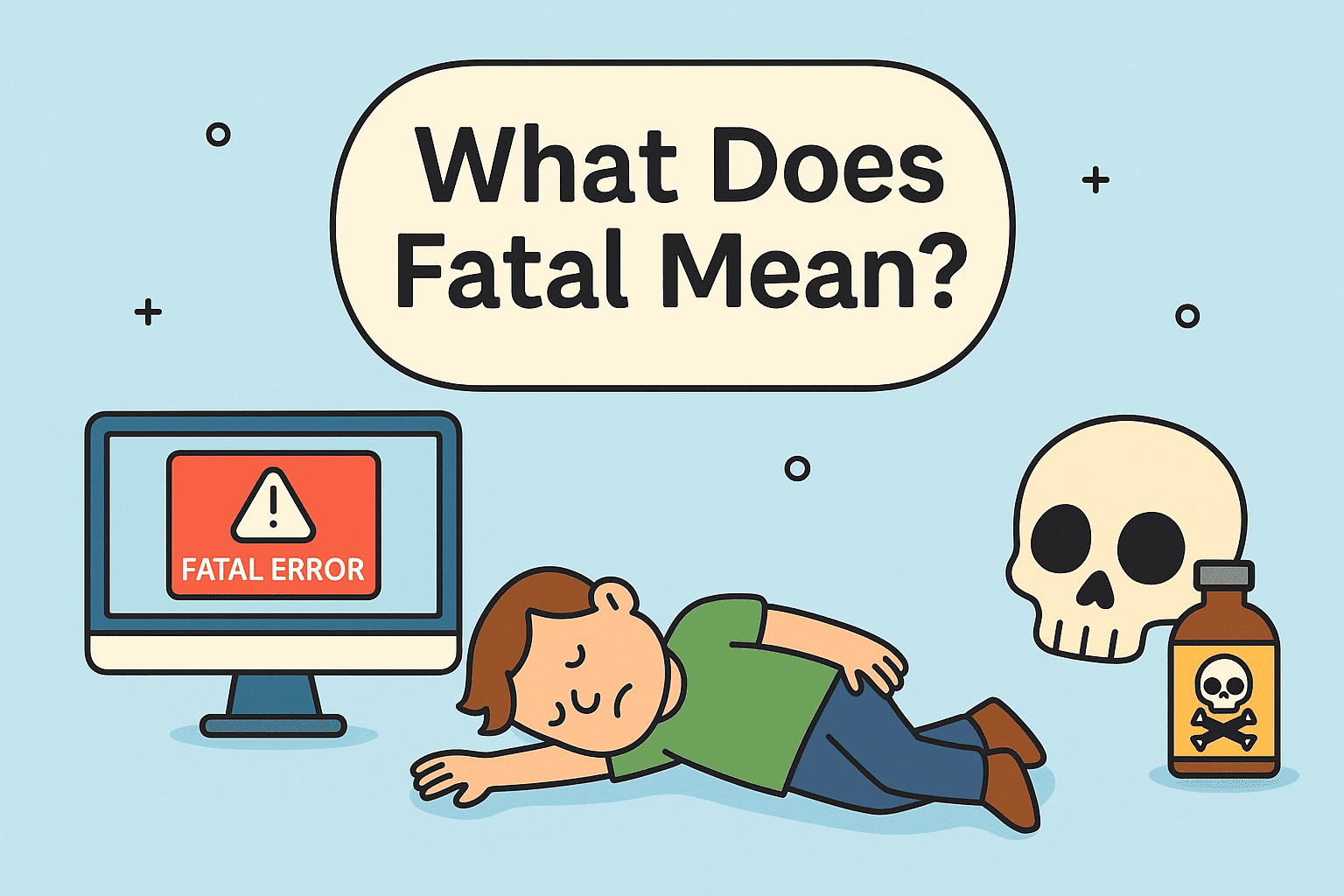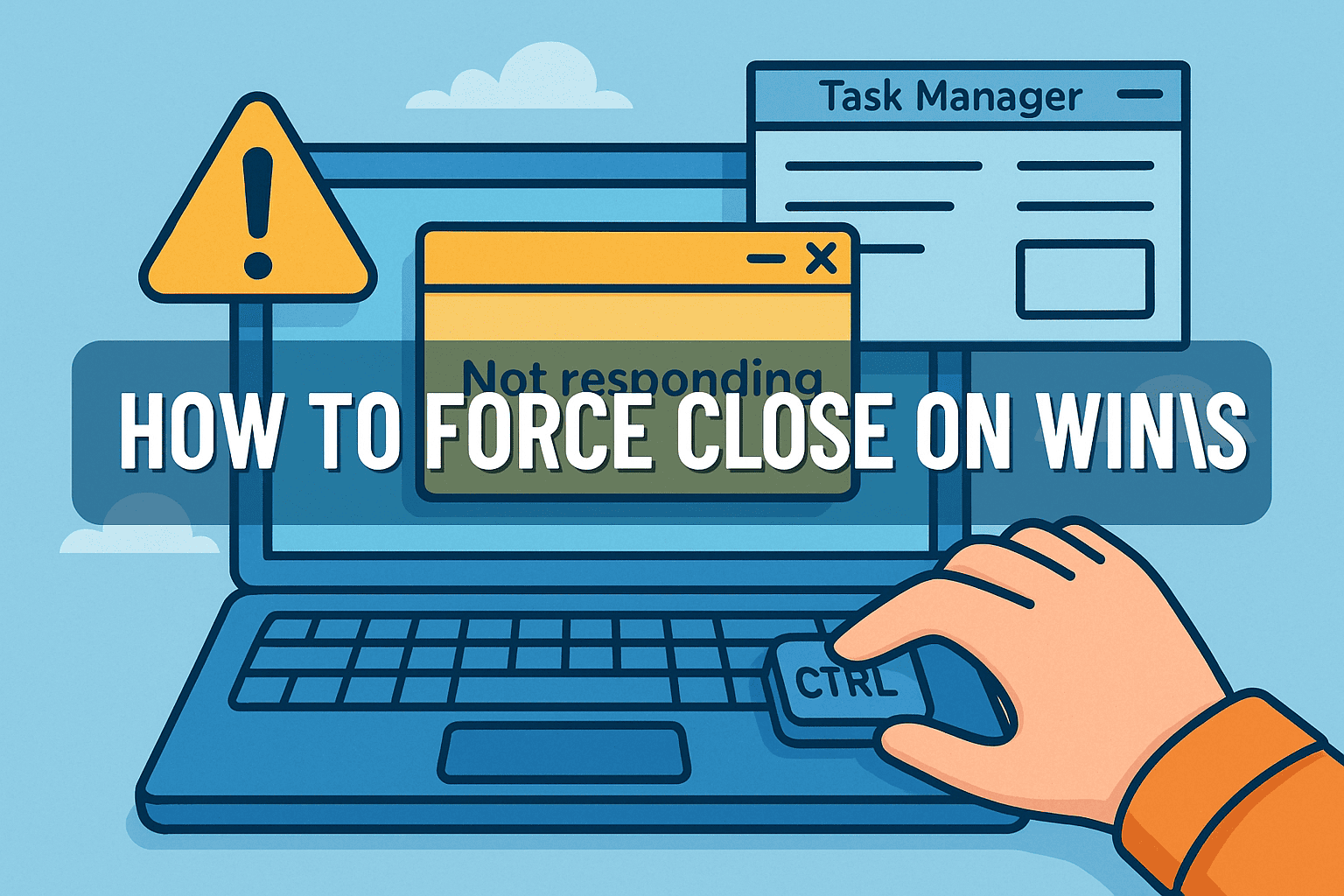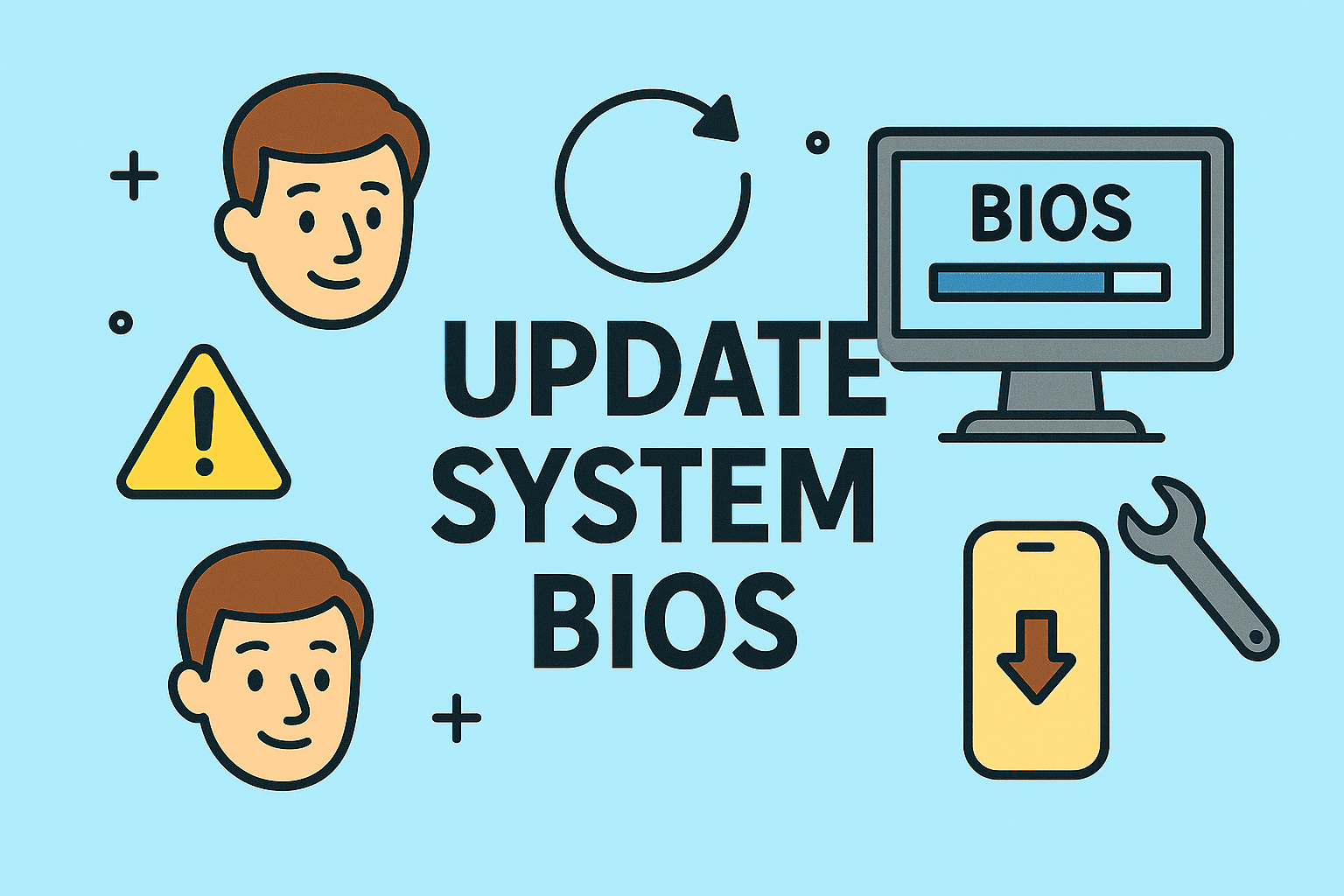What Does Fatal Mean? A Clear Guide for Professionals and Cybersecurity Leaders
Updated on June 17, 2025, by ITarian

Ever paused during a system crash or news broadcast and asked yourself, what does fatal mean? Whether you’re an IT manager, cybersecurity expert, or industry executive, understanding the term “fatal” can help interpret high-stakes situations, from fatal errors in software to fatal injuries in incident reporting.
In simple terms, “fatal” refers to something that causes death or an irreversible failure. But its implications vary widely across different sectors—tech, healthcare, legal, and risk management.
The Core Meaning: What Does Fatal Mean?
The word fatal originates from the Latin “fatalis,” meaning “decreed by fate.” In modern usage, it refers to outcomes that are deadly or irrevocably damaging.
General Definitions:
- Linguistic Definition: Causing death or disaster.
- Synonyms: Lethal, deadly, catastrophic, mortal.
Contextual Meanings:
- Medical: A fatal illness or injury leads to death.
- Legal: A fatal mistake may determine a case outcome.
- Technical: A fatal error causes a system or application to shut down.
“Fatal doesn’t always mean physical death—it can mean functional death, especially in cybersecurity or software contexts.”
Fatal Error: Tech-Side Breakdown
In the IT and software world, a fatal error (or fatal exception) is a critical failure that causes a program or system to terminate immediately.
Common Examples:
- Kernel panic in Unix/Linux systems.
- Blue Screen of Death (BSOD) in Windows.
- Segmentation fault in programming environments.
Causes:
- Faulty drivers or hardware.
- Unhandled exceptions in code.
- Memory corruption or stack overflows.
How to Handle:
- Run diagnostics or system logs.
- Debug with safe mode or rollback updates.
- Apply vendor-released patches or firmware upgrades.
Why It Matters for Cybersecurity:
- Can indicate a breach or exploit.
- May expose vulnerable code or poor system hardening.
Fatal Injury: Implications in Health & Safety
In the medical and emergency response fields, a fatal injury refers to physical trauma or damage that results in death.
Examples:
- Traumatic brain injury from a vehicle crash.
- Cardiac arrest due to electric shock.
- Gunshot wound to vital organs.
Use in Reporting:
- Found in law enforcement, public health, and insurance documentation.
- Influences legal liabilities and policy decisions.
Why It Matters for Enterprises:
- Workplace incidents may involve fatal outcomes.
- Requires robust EHS (Environmental Health & Safety) planning.
- Impacts organizational compliance and crisis communication.
Fatal vs. Lethal: What’s the Difference?
Although often used interchangeably, fatal and lethal have subtle differences in usage:
| Term | Meaning | Example |
| Fatal | Resulting in death or irreversible damage | A fatal software error shuts down a system. |
| Lethal | Capable of causing death | Lethal dose of a chemical compound. |
In Cybersecurity:
- Lethal exploit: May be used to describe a severe threat vector.
- Fatal breach: Refers to an actual compromise with lasting damage.
Sector-Specific Usage of “Fatal”
1. Information Technology
- Fatal exceptions can cause system-wide crashes.
- Highlights poor exception handling in code.
2. Cybersecurity
- Fatal misconfigurations can open backdoors.
- System compromise due to fatal patch delays.
3. Legal & Risk Management
- Fatal decisions during negotiations or litigations.
- Documentation of fatal workplace accidents.
4. Healthcare & Emergency Response
- Fatality rates drive policy in pandemic responses.
- Fatal outcomes affect clinical decision-making.
Best Practices: Preventing Fatal Outcomes
- For IT Teams:
- Regular backups and failovers.
- Unit and integration testing.
- For Cybersecurity Teams:
- Use static code analysis to detect flaws.
- Apply real-time intrusion detection systems.
- For Workplace Safety:
- Regular safety drills and hazard assessments.
- Train teams in emergency response protocols.
FAQs About the Meaning of Fatal
1. What does fatal mean in simple terms?
It means something that causes death or a complete failure.
2. What is a fatal error in computing?
A critical error that causes the application or system to shut down unexpectedly.
3. How is fatal different from lethal?
“Lethal” means capable of causing death; “fatal” means it did cause death or failure.
4. Can a fatal error be fixed?
Yes, by debugging code, patching systems, or updating software components.
5. Where do we encounter ‘fatal’ in professional life?
In IT crashes, legal liability, workplace accidents, or emergency response.
Final Thoughts & Call to Action
Understanding what does fatal mean is more than semantics. It equips you to respond to emergencies, avoid critical failures, and communicate clearly in high-pressure environments.
Whether you’re debugging a system crash, writing security protocols, or managing crisis communications, grasping the nuance of “fatal” across contexts can save lives, systems, and reputations.
👉 Start with Itarian today to strengthen your organization’s resilience against fatal incidents in IT and cybersecurity.














